An article from 24/7 Wall Street published yesterday on Yahoo Finance lists their picks for the worst product flops of 2011. The list includes some understandable big flops such as Netflix's failed decision to change their business model, and curiously listed the Chevy Volt as one of the flops. Given the number of naysayers (many with apparent political motives) who are railing against the development of electrified cars it's worth taking a look at the reasoning by which they call not only the Chevy Volt, but the Nissan Leaf, flops (or worst).
The 24/7 article makes two claims, the first that "excitement has fizzled" resulting in weak sales, and the second that the car is a safety risk because of battery pack fires. Both of these claims are a factually weak negative spin of the truth.
In the context of discussing Volt sales, Larry Nitz, GM’s executive director for vehicle electrification, is quoted saying “It’s naive to think that the world is going to switch tomorrow to EVs [electric vehicles].” The sales figures are described as "consistently low" and they cite July's 125 Volt sales to bolster this claim.
First off nobody expects there to be a wholesale overnight switch to electric cars, so Nitz was simply telling the truth. If your success criteria electric car adoption were to require they immediately take, say, 30% of new car sales, that would be nothing short of ridiculous. Or, as Nitz said, naive. The Toyota Prius was not an overnight success, instead it took several years before its sales took off. Why should we expect anything different from electric cars?
Second, are the sales actually weak? The truth is total sales for the Volt in 2011 were 6,142 through the end of November. This is shy of their yearly sales goal, but how often do companies make sales goals? July's weak sales were because of factory retooling preventing the manufacture of any Volts. This was widely reported last summer, so one wonders why so many ignore this fact? There were 1,139 Volts sold in November, 1,108 sold in October and 723 sold in September. This pattern of rising sales doesn't look like "fizzled".
Sales of the Nissan Leaf were 8,720 sold through the end of November. They sold 672 in November, 849 in October, and 1,031 in September, which is a pattern of shrinking sales.
If you were to measure electric car sales gains between last year (2010) and this (2011) it would be a tremendous jump. In 2010 the only electric cars sold were a few hundred Tesla Roadsters, a few other specialty cars, and the few Nissan Leaf's and Chevy Volts that were delivered in 2010. In 2011 the total electric car sales in the U.S. will be over 15,000, which would be a huge percentage jump if reported this way.
The second point made in the 24/7 article is described this way: "Adding insult to injury, Chevy Volts are under investigation for fires involving the cars’ lithium-ion batteries." The word "fires" is incorrect as there has been only one fire in a Volt. It had undergone extreme crash testing, and the battery pack took three weeks to catch fire. NHTSA later subjected battery packs to additional testing and managed to get two packs to catch fire, at which point they opened a formal investigation. One can, if you will, inflame this to make these facts look bad but the truth is that NHTSA and the car companies routinely go through safety investigations, and in particular car fires are so routine that they're barely reported in the news. There are 250,000 or more car fires per year with hundreds of deaths. Yet one fire, after crash testing, that took three weeks to catch fire, is portrayed as a death knell for the Chevy Volt by 24/7's report. Really?
Referring back to the sales figures and we see Novembers Chevy Volt sales (1,139) were larger than Octobers (1,031). The battery pack fire was disclosed on November 11, 2011, and one would think if the fire was a large concern for Volt buyers that November's sales would have dropped. Instead they grew.
The Chevy Volt is being portrayed by many as an unpopular car with weak sales. We've already discussed the "weak sales" idea, finding that claim to be "weak" but what about its popularity? The sales figures are growing, in the face of a safety concern. A perusal of Chevy Volt owners forums such as gm-volt.com and the Volt Owners group on Facebook show owners who are routinely proclaiming how much they love this car. A concrete example is the couple hundred Volt owners who signed an open letter to GM earlier this month saying essentially that "GM will get their cars back over their cold dead bodies." (see Chevy Volt owners to GM: We're Keeping our Cars & Keys and Chevrolet Volt Owners Most Satisfied, According to Consumer Reports)
A point many make is to tie the Obama Administration to the Chevy Volt and the Nissan Leaf as if both were invented by Obama's team. The truth is that it takes many years to develop a new car design and manufacturing techniques. The Volt's design work began in 2006, for example, well before Obama was elected. Instead electrified vehicles are largely inevitable in part due to technology advances making electrification more cost effective and practical than it was in previous years. All the automakers foresee tightening emissions and fuel efficiency regulations over the coming years, and are working proactively to improve both these scores, relying on hybrid and electric vehicle technologies in an ever increasing ways. An example is Ford's long-range plans for vehicle electrification, and that, in 2020, 10-25% of Fords new vehicle sales will be electrified vehicles (hybrid, plug-in or full electric). (see Ford showcasing 100 MPGe Ford Focus Electric and other clean vehicle technology)
We're at a beginning point for electrifying the vehicle fleet not only in the U.S. but around the world. Governments and automakers recognize that fuel availability (peak oil) and environmental concerns point to the need to radically increase fuel efficiency and decrease emissions. In the meantime the current electric car program has become politicized with many factually weak attacks on the cars and the program. Was the Volt a flop in 2011? The facts say otherwise.


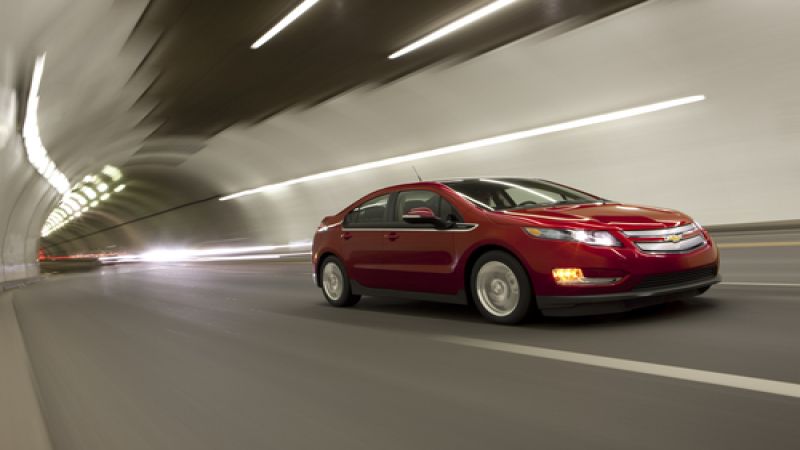




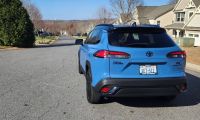
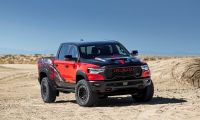
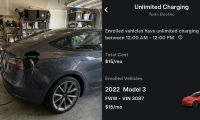

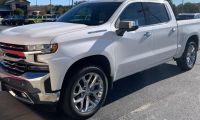
Comments
There are those that fear and
Permalink
There are those that fear and wish to deny inevitable change.
Increasing sales, a committed
Permalink
Increasing sales, a committed and some might say "rabid" customer base that loves the Volt, amazing MPG results, buyers replacing high end German and Japanese cars with a Volt, an increase in Chevy showroom traffics and sales, and all this despite a concerted effort to run a political smear campaign against the car. Flop? Hardly.
If it were a flop, the Volt bashers would not need to be working so hard to convince you.
In March of this year, I
Permalink
In March of this year, I travelled from my home in Massachusetts to New Jersey to pick up the Volt I had ordered on the phone months before. Nearly 10 months and 10,500 miles later, I absolutely love this car. It is fun to drive, corners like it's on rails, accelerates with the best of them, is comfortable. My lifetime average MPG, now that cold weather has set in, has dropped from 144 to 128 but who's complaining?
GM should set up each of the naysayers with a "Volt for a week" program. They would quickly be singing a different tune. When my letter from GM arrived offering to take the car back if I had battery fire worries, I called the Volt hotline and suggested that they would need the jaws of life to wrest that car from me.
With respect to the Leaf, I can picture a Leaf fluttering to the side of the road, out of juice, 10 miles from home. Especially in cold weather as the promised 100 miles per charge deteriorates to who knows how low? The only way that I would ever consider a leaf is if it can pull a trailer on which i can mount a generator.
Oh! Wait! I just described a Chevy Volt but, look ma, no trailer!
Why hate on the Nissan LEAF?
Permalink
In reply to In March of this year, I by Leonard Mintz (not verified)
Why hate on the Nissan LEAF? The thing you like about your Volt is that it can run without burning gas, you will eventually want that benefit all the time, which is what the LEAF does. I understand why someone would buy a Volt, it's great to have a real hybrid on the market. Let me know when you see that LEAF on the side of the road.
Volt could be all electric if
Permalink
In reply to Why hate on the Nissan LEAF? by Gotmyleaf (not verified)
Volt could be all electric if your commute is under 40 miles a day. You could propel this car 100 % on electricity. Not a hybrid. You have the option to drive on gas meaning you can fill up anywhere. You could drive across the country. Make long trips like with any car. I don't see the leaf as competition for the volt. The volt stands alone.
We own a Volt, and we're
Permalink
In reply to In March of this year, I by Leonard Mintz (not verified)
We own a Volt, and we're quite happy with it, but that's no reason to put down the Leaf. Nissan made a good car, and the Leaf serves its niche well.
Why do you have to slam Leaf
Permalink
In reply to In March of this year, I by Leonard Mintz (not verified)
Why do you have to slam Leaf to promote Volt. As a Leaf owner I am rooting for Volt to succeed. Both are wonderful cars. I chose Nissan Leaf because I prefer a fully electric car and can live with range it provides. This is my family's second car and most of our driving(95%) is less than 60 miles a day and with a 220 Volt charger at home, it is working out perfect for us. You are not the only Volt owner belittling the Leaf, one guy called it a toy car with no power. I challenged the guy to a drag-race with my Leaf. Never heard from him again.
I placed a reservation for a
Permalink
I placed a reservation for a Nissan Leaf in April of 2010. Like thousands of others, I am still waiting in line. I hope to get the car in mid-2012. So, the current status is low production matched with high demand. Some media outlets ignore this fact - perhaps intentionally. Their blatant lying just makes my head explode.
Nissan says they're going to double production of the Leaf in 2012. And GM will be more-than-doubling production of the Volt. I predict they will sell just fine. We'll see.
So far Leaf production has
Permalink
In reply to I placed a reservation for a by Steve (not verified)
So far Leaf production has been in Japan, with promise of a new plant in Smyrna TN which is where the 150,000/yr production volume is supposed to be. That plant is expected to get up and running in late 2012.
I don't believe that it's
Permalink
I don't believe that it's naive to think the world will switch from gas guzzling cars to electric. It's naive to think many people can afford the price. People like them. Many people want to reduce dependency on foreign oil and want to buy American products. Make them cheaper and make them well and I promise you, we'll buy.
The Mitsubishi i-Miev is
Permalink
In reply to I don't believe that it's by Anonymous (not verified)
The Mitsubishi i-Miev is $21,625. That's pretty cheap. What's stopping you now?
That price is after the $7500
Permalink
In reply to The Mitsubishi i-Miev is by Tinapoli (not verified)
That price is after the $7500 tax rebate. It's a really good price and I recently drove an iMiev and really liked it.
Nice car or not, a simple
Permalink
In reply to The Mitsubishi i-Miev is by Tinapoli (not verified)
Nice car or not, a simple "Thank You" to all the taxpayers first who helped make the subsidy happen would have been appropriate as well as a forthright gesture. See, that's the point, ya'll? Not to be disrespectful of others' opinions, but why are masses supporting the few, and for a foreign car on top of it?
I have to admit, this discussion has really opened my eyes to the spectrum of thoughts on this subject. It's way beyond the green tech and the cars. The lack of fairness with regard to subsidies amazes me; and that's a sorry state in my opinion.
I find the comment regarding
Permalink
I find the comment regarding some naysayers being politically motivated very revealing.
EV's are seen as 'green' by many, therefore it is assumed its owners are rabid liberals thereby attracting the vitriol of extreme conservatives. The conservatives also hate EV's because they attract tax credits from the government.
Interestingly tax credits are the lesser of two evils when trying to provide incentives for EV adoption. Credits encourage the behavior desired. Increased taxation on gasoline, (touted by many elected officials as the way to encourage EV adoption) punishes an activity people want to do, increases taxes unnecessarily and creates resentment by those who do not have the means to buy a new vehicle.
I can only hope tax credits continue to be the financial vehicle employed to encourage EV adoption. (A little voice inside tells me the opposite will probably be the outcome - politicians like to increase taxes no matter which party they are affiliated with).
There are plenty of
Permalink
In reply to I find the comment regarding by JP White (not verified)
There are plenty of "Conservative" reasons to adopt EV's, and I don't see it as a political thing but one of necessity. An example of a Conservative Value that supports EV adoption is Energy Security. The U.S. went past it's peak of oil production in 1970 and cannot do anything to increase oil production which means the U.S. balance of trade is horribly undermined by all the oil we buy from elsewhere. And it also means that OPEC has us over a barrel, and on and on. EV's are a way out of oil dependency (as GW Bush said .. The United States is Addicted to Oil) and improving national energy security, which would be a Conservative Cause. Except the Conservatives seem to have decided they must protect the business model of the oil companies and undermine EV adoption.
I agree that it need not be a
Permalink
In reply to There are plenty of by David Herron
I agree that it need not be a political issue and oil dependancy/trade deficits are clearly a bi-partisan problem. However judging by comments on blog articles regarding EV's it seems there is a polarization of attitudes occurring regarding EV's. It's a true shame, but unfortunately one of the stumbling blocks that will need to be overcome as the EV story unfolds.
Thank you for this Mr.
Permalink
Thank you for this Mr. Herron, this is great. What I now call the 'Spin Network' is relentless. I suggest that anyone that believes in choices comment on every untrue article that is on the internet regarding EV's and PHEV's. I have found that many people get their introduction to these vehicles from the Spin Network and are totally misinformed. So we all have to do our part so that we can keep our cars and give the technology a chance to get better and less expensive.
This is the biggest pile of
Permalink
This is the biggest pile of BS i have ever heard.the electric car is a flop you just have to face facts.the rest of the world is not making electric cars they are driving clean diesel cars. ford makes a small car in Ohio for export that gets 69 miles a gallon! The big auto makers along with toyota are to stupid or are getting too many bribes to sell anything good here in US.The 70 series lancruisers are the workhorse of the world and all we get is a petrol oversized tacoma with a automatic transmittion.
Hey Anonymous. I agree with
Permalink
In reply to This is the biggest pile of by Anonymous (not verified)
Hey Anonymous.
I agree with you that in the short term Diesel will buy us the time needed to get EV's where they need to be for mass adoption. But be sure to understand that Diesel just buys us time, it doesn't solve the basic problem of depending on unfriendly nations and limited supply of oil for powering vehicles to support our logistics needs.
The revolution has started with EV's, just give it the time it needs to mature.
We got one! - Define 'flop'
Permalink
In reply to This is the biggest pile of by Anonymous (not verified)
We got one! - Define 'flop' because 20,000 sold Nissan LEAF's is a pretty strange 'flop' to me. Diesel cars are great and they are about the best that can be done with an ICE. They can't beat an EV though.
OK, I have to stop you there.
Permalink
In reply to We got one! - Define 'flop' by Gotmyleaf (not verified)
OK, I have to stop you there. That anti-ICE comment "best that can be done with an ICE" is definitely not true. There is far more to come from IC engines like a Ford EcoBoost with electric superhchargers, GM's HCCI, the Split Cycle Air Hybrid of Scuderi, etc. which will definitely give the EV a run for its subsidized money, in my opinion. And all of them can be run with Nat-Gas, a commodity where America is cartel king this time.
Yes, I like EVs, too, just not when those who can afford BMWs and Infinitis get tax subsidies. I resent the favoritism. We didn't give subsidies when airbags came out, or disc brakes; and all of those helped society be safer and saved lives.
OK, so you used 'flop' just
Permalink
In reply to OK, I have to stop you there. by Frank Sherosky
OK, so you used 'flop' just to say something bad about EV's.
Those other options that you mentioned would be nice, but they still rely on fossil fuels and I see that you are in favor of them, I am not. I can provide my own fuel with solar panels, fossil fuel-reliant vehicles don't have that option. I think that EV's were chosen because the technology is proven and established, the batteries are in all of our mobile devices. Oil companies are still the government favorite, if judged by subsidies, and they POLLUTE FOR FREE. Pollution cost are real but we, as consumers have the expense placed on us. We pay in dollars and our health but most of us act as if there is no solution. So we give oil sellers tax reductions, then we pay to clean up or live with the pollution.
Fracking for natural gas is just plain self-destructive and it is required in order to show huge reserves.
1) EVs are great. I just
Permalink
In reply to OK, so you used 'flop' just by Gotmyleaf (not verified)
1) EVs are great. I just don't want to help you buy one. I'll buy mine; you buy yours on your own. In fact, I drove the Leaf; great car. I liked it, but the Chevy Cruze was the better economic purchase for my family.
2) Those socalled "nice" options of ICE use far less fossil fuel than you realize; that's why they're "nice." Think affordable transition here UNTIL your battery tech comes of age with affordability. Fact is (supported by government statistics), your present ideological position will still take multiples of decades for the masses to afford. Can you say, 2030? In the meantime, you're wasting money and getting very little green in return. Think spit in the ocean.
3) Proper fracking is safe, and well below the water shed level; plus, not all oil and gas deposits requires fracking. So I suggest reading something other than just liberal papers for all your tech information
4) We're getting greener everyday, which is good. We just can't do it by subsidizing the few at the expense of the many. Infrastructure and research should be the limit for subsidies in a free market society; and that includes oil, farmers, corporate welfare and EVs.
The Volvo V60 is an
Permalink
In reply to 1) EVs are great. I just by Frank Sherosky
The Volvo V60 is an interesting vehicle. Plug-in Hybrid that runs on Diesel. 150mpg
Alas, Volvo have no plans to sell in the US. So I'll just keep driving my 99 MPGe LEAF:-)
1) A gas burner operating
Permalink
In reply to 1) EVs are great. I just by Frank Sherosky
1) A gas burner operating cost is always more than an EV's, but upfront cost can make an ICE look better. Infrastructure is the real EV challenge.
2) ICE's burn fossil fuels, that's poison. My idealology saves me money, even with current battery cost, short and long term cost of an EV are much less than an ICE. I can see the transition being needed until the charging infrastructure is deployed, but that's it. $50 for fuel to go 1,000 miles is my reality now with an EV, even with a car payment, I'm saving. That 2030 thinking ignores many, many variables. The reality of EV ownership is very, very cost efficient.
3) How is pumping poison into the ground, to breaking up solid rock safe? I read a report that talked about how fracking only caused 1.0 magnitude earthquakes at most. The day after I read it, Oklahoma had a 6.5 earthquake for the first time. Fracking. Earthquakes aren't "liberal" whatever the heck that means to you.
4) I understand your point about subsidies, but it ignores many facts. Tax rebates encourages behaviors, you said that getting greener is better, I agree. As a matter of fact, I think most people agree and want to encourage green/clean energy. How do we do that as a nation? Oil companies get tax rebates, it encourages their behavior, which you and I don't find desirable. Oil companies use their money to bury competition and have been for a long time. There is no such thing as a free market, it's just another term for Kingdom. They rig the game in their favor then tell us that it's 'free' and kill competition and progress. So the 'free' market is what is unfair and only benefits a few at the cost of many. The truth is that we are the government and we should promote what benefits us.
C'mon, admit it. You only
Permalink
In reply to 1) A gas burner operating by Gotmyleaf (not verified)
C'mon, admit it. You only think you are green. You know darn well the electrical plug you use is still connected mostly to coal and natural gas. So, get off the high horse about IC engines being poisonous and evil, while your EV is somehow godly and as clean as a baby's breath. Its exhaust is just located elsewhere, better known as the generating plant of one of the many utility companies that feed the grid! And don't tell me the grid will be fulfilled by solar cells and wind generators; not anytime soon and surely not in this generation.
Frank, Gasoline does not
Permalink
In reply to C'mon, admit it. You only by Frank Sherosky
Frank, Gasoline does not come out of the ground ready to burn. Getting gasoline out of the ground involves horrendous ecological disasters, geopolitical garbage (such as the illegal war in Iraq), a zillion different toxic chemicals, and more. I've seen evidence (not fully evaluated yet) that the refining process to refine a gallon of gasoline requires 6kwh of electricity, and if that electricity were instead used to run a car the car would go twenty miles or so. The exhaust coming out a gasoline or diesel vehicle tailpipe is poison.
With all respect, the exhaust
Permalink
In reply to Frank, Gasoline does not by David Herron
With all respect, the exhaust creating the power in your plug is also poisonous, unless you limit charging to solar, wind or hydro sources; and not every zone has that availability. Electricity in your plug doesn't get there by fiat; nor is it free; and nor is it secluded from coal, oil and nat-gas which is the cleanest of the three. Problem is, we need to address the now as much as tomorrow. The energy sources for your plug-ins are far from green right now and will be for some time, except for solar, wind and hydro; but, according to every energy study, are insufficient to meet growing world demand.
Gasoline reduction is in the cards for sure, but that will take time simply because the cost of owning EVs will cut out the masses for at least a decade; and that's been my point all along. It is the masses that will avail the green gains all of us seek. Nuff said; I'm done. Let the bantor continue.
$$ 'Green' is great but my
Permalink
In reply to C'mon, admit it. You only by Frank Sherosky
$$ 'Green' is great but my main motivator in buying my EV was reducing expenses. I don't think an EV is any cleaner than any of the other appliances in my house, they all plug in.
I own a Nissan Leaf. Best
Permalink
I own a Nissan Leaf. Best car Ive owned. I also think it is a sales success. At over 9000 US sales with a duplicate number in Japan, the Leaf was very successful in its first year. The Prius only sold 3500 in its first year. That car ended up being a sure sales winner. Next year will be even bettwr for both Volt and Leaf and the Ford Focus EV. The best part.........I think it is great that there is a car that will punch a hole in the oil companies revenue stream. Fewer expensive mid east oil wars wouldnt hurt either.
Pagination